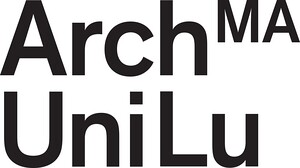Application deadline: February 26, 2021
Markus Miessen has been appointed new Professor of Urban Regeneration – Endowed Chair of the City of Esch at the University of Luxembourg.
In the context of the new chair, two positions will become immediately available at the postgraduate programme “Architecture, European Urbanisation, and Globalisation” (www.masterarchitecture.lu):
Postdoctoral researcher in the field of Urban Transformation
Doctoral Candidate (PhD student) in the field of Urban Transformation
Publics (And Their Assemblies) – Moderating Inclusive Change in a Cross-Border Geography
A heterogeneous social reality demands corresponding spaces of social interaction. Urban regeneration is deeply rooted in the social sphere. No architect, planner or city authority can ever generate an urban equilibrium through purely physical change. Especially in geographies of structural change, spatial regeneration should be a process of carefully considered attempts to collaboratively rethink the social, economic, and cultural variables of an area. Regeneration is about how we are encouraged to interact with one another. Therefore, sustainable regeneration necessitates communication on equal terms, including diverse stakeholders.
In order to rewire the planning system towards resilient and inclusive infrastructure, planners should serve the public, considering their local and regional constituencies. In times of digital transformation and COVID-19, this seems to hold true more than ever.
Miessen’s central competence will be to curate, moderate, and collaborate. His research and consulting will propose participation as a practice without mandate that initiates dissensual practices of pro-active involvement. Beyond models of participation as a form of inclusive practice, the new chair will promote the role of the “uninvested outsider.” Here, participation is understood as the process of formulating precise entry points into existing local and regional discourses from the point of view of critical planning, assuming responsibility beyond hierarchical practices of design.
In the context of the city of Esch, Miessen’s role will be that of a mediator, who can think and act across scales—between the city, its population, the university, and a variety of internal and external stakeholders and actors. This interface will become the playing ground for all research activities: communicating across disciplines and fields of knowledge, from the social sciences to political analysis, from spatial design to its local economic consequences. Working hand-in-hand with ongoing initiatives will support working towards a more socially and politically sustainable future and will help enhance quality of life in the cross-border region. Like most geographies, which are undergoing post-industrial structural change, southern Luxembourg is facing a situation in which the communication between different actors in a decentralized development pattern is crucial. This situation requires a curated process of spatial rethinking and production, in which academic research and carefully managed formats such as public charettes fertilize local and regional politics.
As part of Esch’s upcoming formats of the “Internationale Bauaustellung” (IBA, 2022-32) and the European Capital of Culture (2022), the research studio actively supports and engage with already existing curatorial frameworks. This uncommon situation presents new opportunities to bridge between different actors and stakeholders.
The new chair will attempt to facilitate a situation, which is not purely the result of formal planning parameters—to the point that it leaves no more space for informal activities—but instead will aim for a model that recognizes Luxembourg’s scarcity of land while advocating zones of deliberate uncertainty. By reassessing architectural, social and political roles, Miessen will develop a series of critical foci for Esch. Those focal points will be developed around variables of direct involvement that effect and affect its contemporary and future reality. The new chair will produce immersive research, based on real evidence, oral history, working in actual situations—in short: alongside actual people and their local histories.
Spatial planning is always connected to the management of conflicts. Through critical forms of collaboration, the studio will position itself at the interface of civil society, politics, and design. Bridging the gap between planning procedures and local constituencies, while integrating stakeholders from all sides, the studio will create a local incubator, which will migrate academic life and research culture to the heart of the city. Miessen’s ambition in this situation will be to promote, carry out and support embedded research, developing prospective and strategic frameworks for best-practice-planning that interrogate models of purely economic growth towards a more inclusive culture of civil society, quality of life, and sustainable futures.
In the transformation from heavy to service industry, it is important to deliberately maintain spaces of common memory and assembly, including the maintenance of seemingly residual sites, which may be associated with marginalized groups. Miessen’s research suggests that a “from scratch” situation, in planning terms, is a myth. There is always and already a narrative in place. We just need to allow for it. And it is our responsibility as researchers and planners to decolonize this myth.
Markus Miessen is an architect (www.studiomiessen.com), writer, and Professor of Urban Regeneration at the University of Luxembourg, where he holds the Chair of the City of Esch, associated with the master programme “Architecture, European Urbanisation, Globalisation” (www.masterarchitecture.lu). He received his PhD from the Centre for Research Architecture at Goldsmiths, London, supervised by Eyal Weizman. The initiator of the Participation tetralogy, his work revolves around questions of critical spatial practice, institution building, and spatial politics. Miessen has previously taught at the Architectural Association (London, UK), and has been a Harvard Fellow. Most recently, he has held a Stiftungsprofessur for Critical Spatial Practice at the Städelschule (Frankfurt, DE), and was Distinguished Professor of Practice at the University of Southern California (Los Angeles, US). Amongst many other books and writings, Miessen is the author of The Nightmare of Participation and Crossbenching: Towards Participation as Critical Spatial Practice, (both Sternberg Press and Merve Verlag, Berlin).



